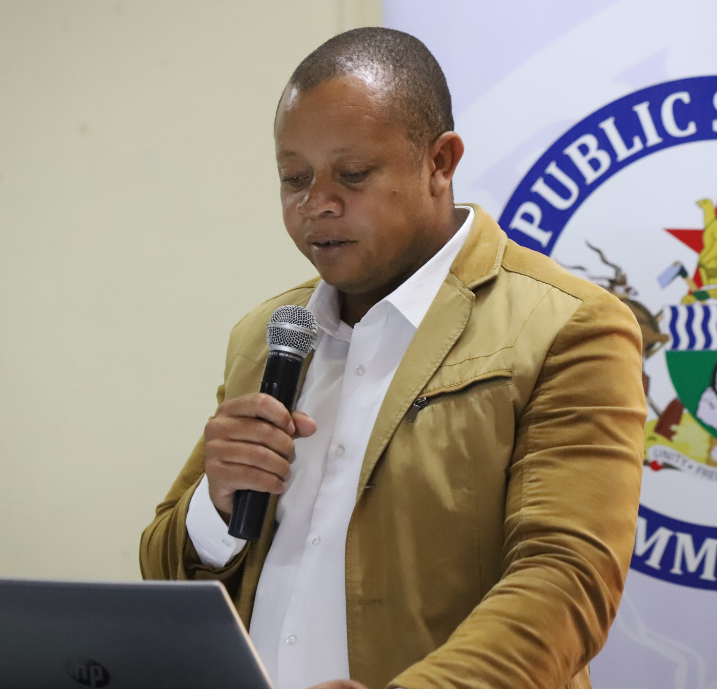Matabeleland South government officials have introduced new guidelines for Non-Governmental Organisations (NGOs) operating in the province, demanding the need for standardised procedures to make sure their activities align with local development goals.
These new guidelines appear to be an extension of the government’s ongoing efforts to exert greater control over NGO operations in the country since the Zanu PF-led government has a history of threatening to deregister NGOs and Civil Society Organisations (CSOs) that it perceives as engaging in political activities.
The new guidelines were communicated in a letter dated August 19, 2024, by Acting Provincial Director of Local Government Services in Matabeleland South Zacharia Jusa that was addressed to District Development Coordinators (DDCs), Town Clerks, and Chief Executive Officers across the province.
In the letter, Jusa stressed the importance of addressing inconsistencies in NGO operations by implementing a standardised system that promotes efficiency, accountability, and strategic alignment.
He outlined several key requirements that NGOs must adhere to in order to continue their work in the region and the letter was also copied to Secretary for Provincial Affairs and Devolution in Matabeleland South, Lathiso Dhlamini Maseko.
Jusa called for comprehensive Needs Assessments at the district level to evaluate the relevance and necessity of proposed NGO initiatives.
“Each district must conduct a Needs Assessment to inform which areas are essential in evaluating the relevance and necessity of proposed NGO initiatives,” he stated.
The acting provincial director also emphasised the need for district profiling to register developments achieved so far in “each and every sector and per ward.”
“The profile informs areas that are lagging behind and needing intervention,” Jusa said, saying such will guide the “appropriate” placement of NGO partners.
Highlighting the need for ongoing evaluation, Jusa directed that all districts must have “Continuous Assessment” of NGO partners, noting that some organisations had “long lost their relevance.”
To address this, a District Monitoring and Evaluation Committee must be established to monitor programs at least once a year.
“Where necessary, MOUs must be revoked to allow the partner to introspect and realign their programs to suit current needs,” Jusa added.
Jusa added that NGOs are required to submit 24 registration documents to the district after receiving clearance from the province.
The documents must be distributed among various local government departments, including the DDC’s office, Chief Executive Officer or Town Clerk and the Department of Social Development.
After submission, a Technical Committee, particularly the Social Services Subcommittee of the Rural District Development Committee (RDDC), will review NGO project proposals.
“The sub-committee will evaluate the relevance and impact of the projects and designate operational areas based on needs and gaps. The subcommittee will recommend to the Social Services Committee of Council. This committee will deliberate, ratify and forward the recommendations to the Full Council for final resolutions,” Jusa said.
The acting provincial director also outlined the process for signing Memorandums of Understanding (MOUs) between NGOs and local authorities, stating that the DDC would facilitate this.
The MOUs must include multiple signatories, including the DDC, Chief Executive Officer or Town Clerk, and the Department of Social Development.
Jusa said inception meetings for all new programmes are mandatory, and key stakeholders such as Chiefs, Councillors, and Members of Parliament must be invited.
“These meetings are meant to inform and engage local leadership prior to (programme) implementation,” he said.
It was recommended that councils are encouraged to warrant Ease of doing business systems to make sure there is an earliest start of projects while NGOs are also to be encouraged to expedite funding to both the Social Services Committee and the Technical Committee to facilitate programme initiations.
Jusa said if there was “failure to fit” in instances where an NGO’s programme does not align with the district’s strategic needs, “it is the responsibility of the DDC to formally communicate such findings to the Provincial Office so that the partners are relocated.”
NGOs are also required to submit monthly reports detailing financial, quantitative, and qualitative developments, as well as the impact of their initiatives.
These reports must be submitted to five specified departments at the district level and any other relevant departments.
The district will consolidate these reports and submit a bi-annual report to the provincial office.
Additionally, Jusa mandated that all partner visibility signboards display both the government (on the left side) and local authority logos (right) on the top to reinforce collaborative efforts.
These new guidelines follow earlier orders from Jusa, who, as the then Insiza DDC, instructed NGOs and CSOs in Insiza to cease operations until they provided relevant documentation and received clearance to operate.
The directive faced pushback from the Zimbabwe Human Rights NGO Forum, which argued that the DDC’s office lacked the legal authority to enforce such a suspension and threatened legal action if the order was not withdrawn.

